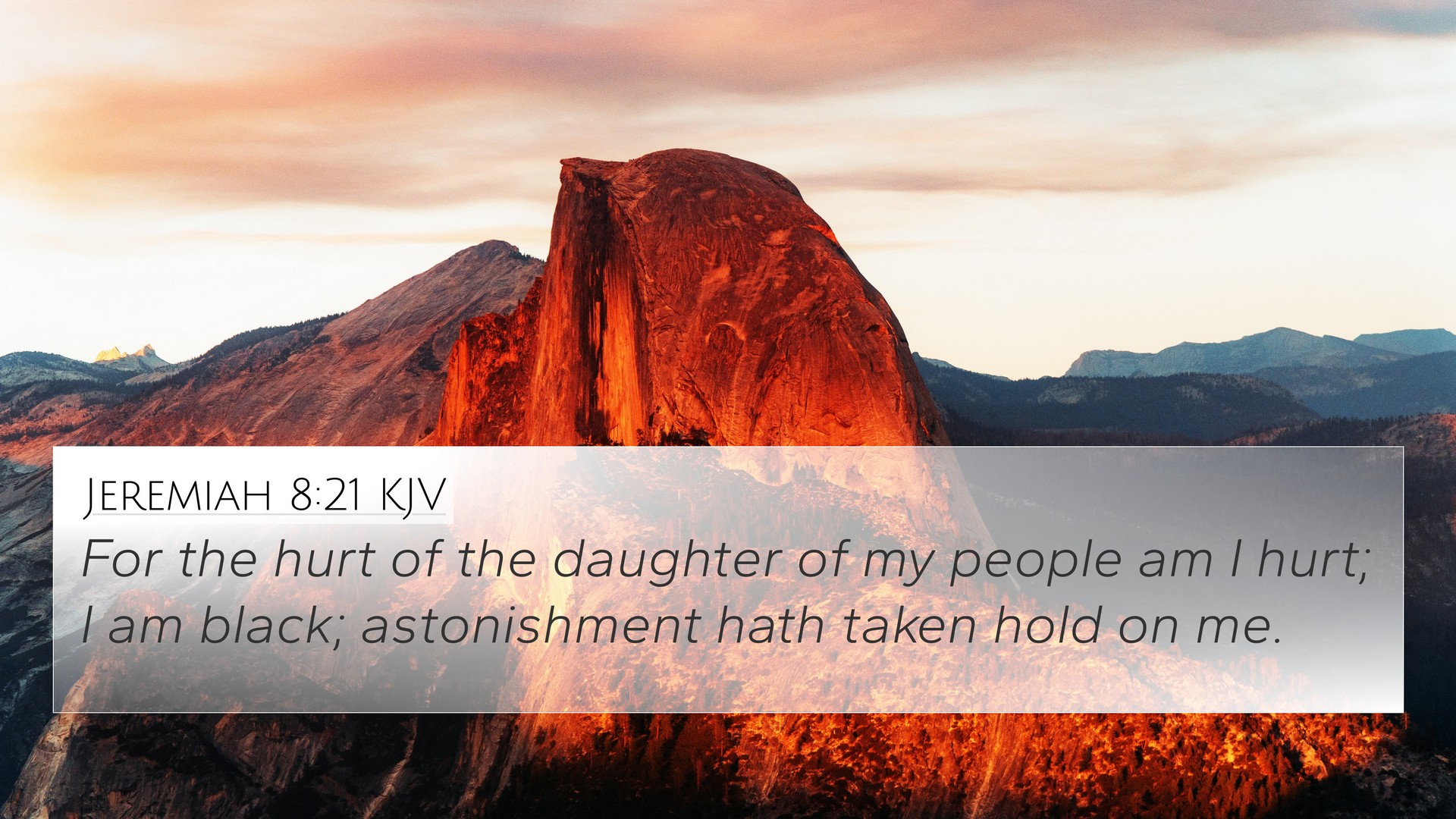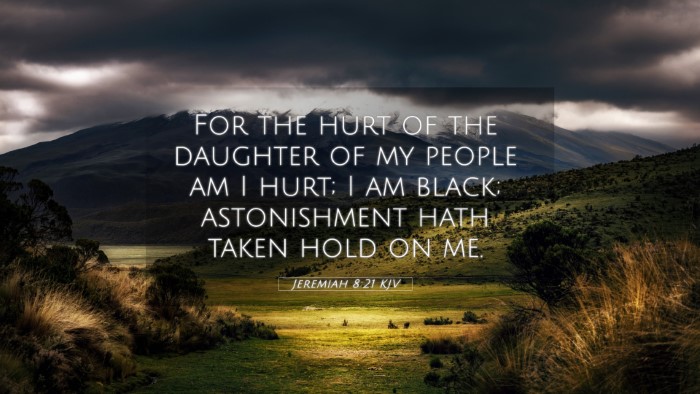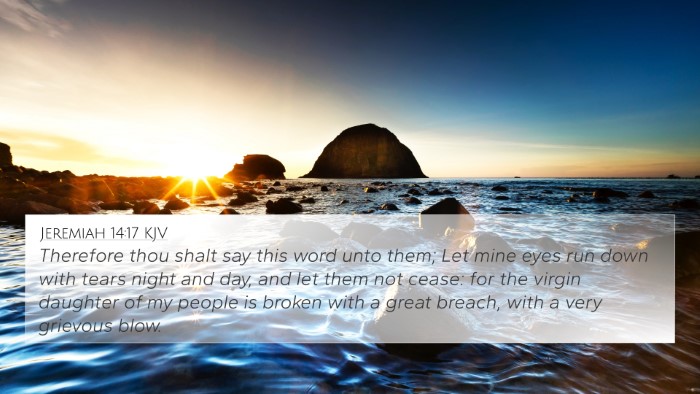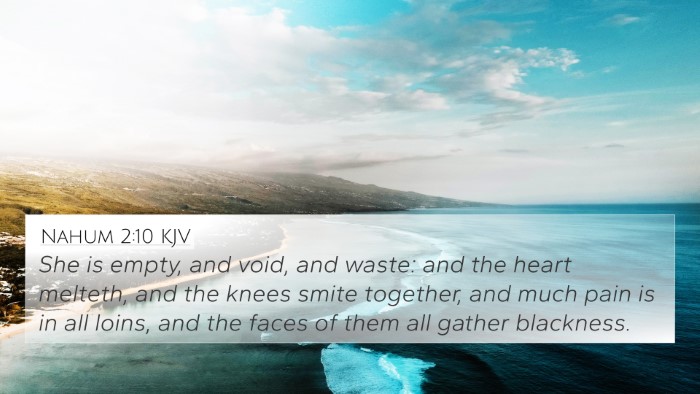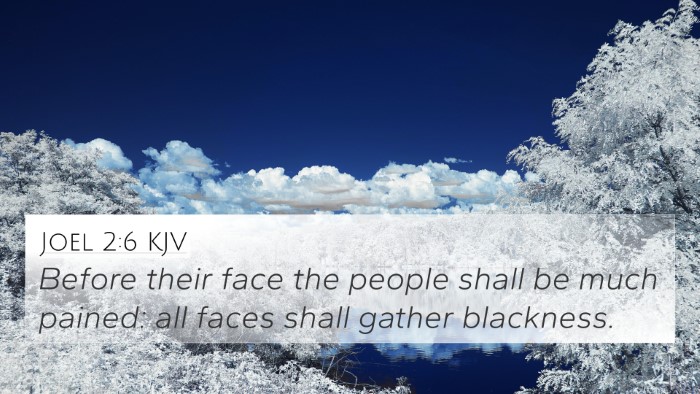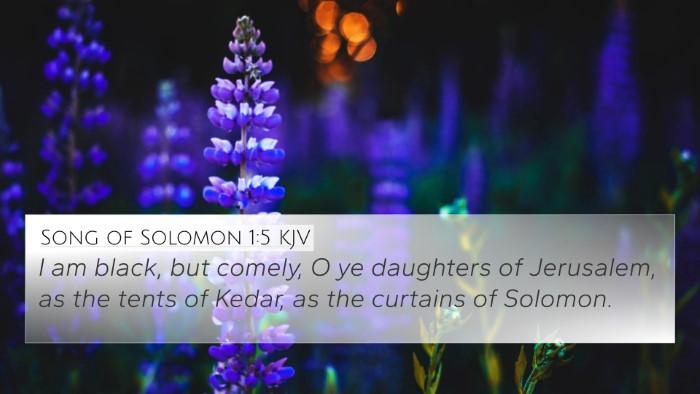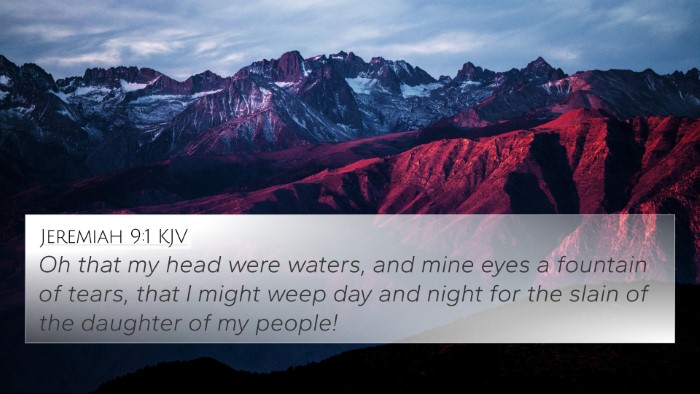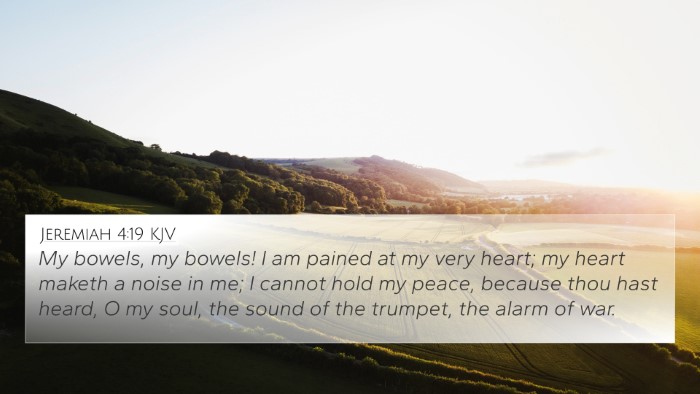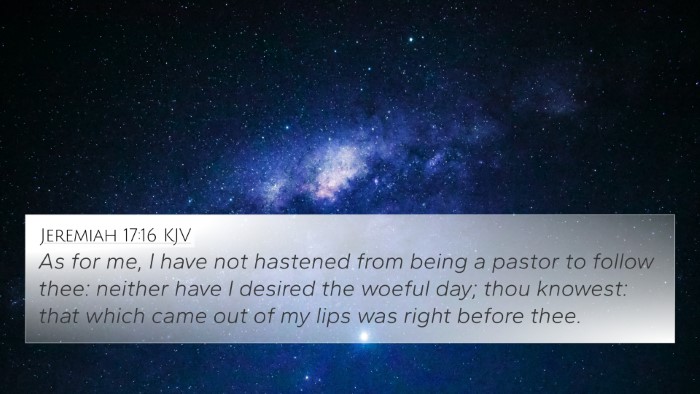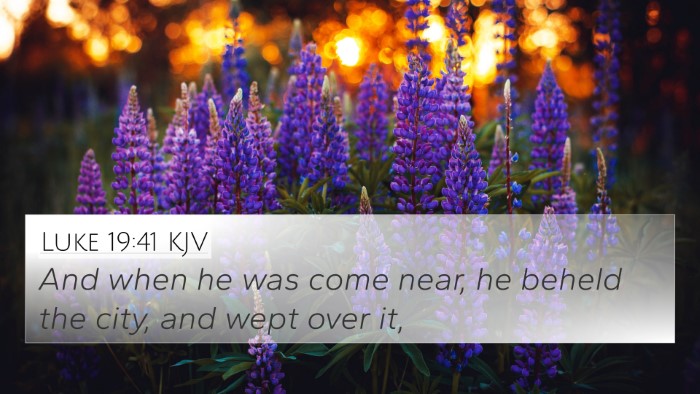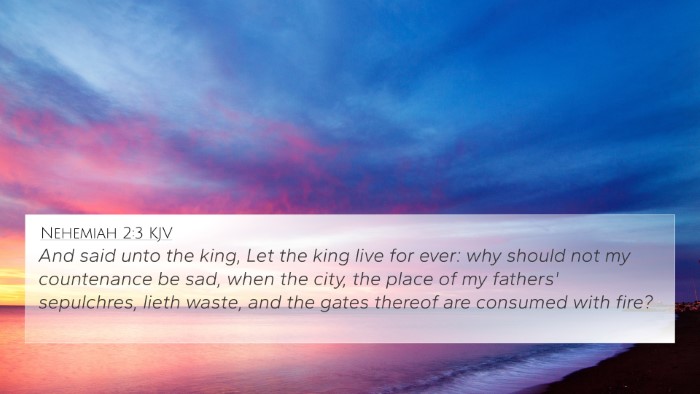Understanding Jeremiah 8:21
Verse: "For the hurt of the daughter of my people am I hurt; I am black; astonishment hath taken hold on me." – Jeremiah 8:21
Overview of the Verse
Jeremiah 8:21 captures the profound grief and sorrow of the prophet Jeremiah over the suffering of his people due to their sins and the impending judgment. In this verse, he expresses a personal anguish that reflects God's heart towards His people.
Combined Commentary Insights
-
Matthew Henry's Commentary:
Henry emphasizes the deep emotional state of Jeremiah. He interprets "I am black" as a metaphor for his sorrow, indicating a state of mourning. The astonishment that overtakes him signifies the shocking nature of the people's disobedience and its consequences. Jeremiah's pain is a reflection of God's displeasure and the weight of the people's transgressions.
-
Albert Barnes' Notes:
Barnes points out that Jeremiah's sorrow is not only personal but represents a broader concern for the community. His description reveals how the sins of the people have led to serious social and spiritual disarray. Barnes notes the gravity of the situation, underscoring that Jeremiah was disturbed not just for the physical suffering but for the spiritual blindness of his people.
-
Adam Clarke's Commentary:
Clarke underscores the prophet's empathetic role, identifying himself with the sufferings of the people. He mentions the term “daughter of my people” as a sign of familial ties and deep emotional connection. Clarke also highlights the contrast between the prophet's sensitivity and the people's hardened hearts in the face of impending calamity.
Thematic Connections
This verse can be connected to several major themes in scripture that enhance its understanding:
- The Prophetic Call for Repentance: Jeremiah often calls for the people to return to God, paralleling other prophetic warnings in Isaiah and Ezekiel.
- The Heart of God for His People: The emotional response of Jeremiah can be mirrored in other verses where God expresses His heartache over Israel's sin, such as in Hosea 11:8.
- Consequences of Sin: The sorrow in this verse aligns with warnings found in Proverbs 14:34, highlighting the ruin that follows moral decay.
- Mourning and Comfort: Jeremiah's grief is in line with themes of mourning found in Matthew 5:4, where Jesus blesses those who mourn, suggesting that there is a path to comfort after sorrow.
- The Role of the Suffering Servant: Jeremiah's sufferings foreshadow the greater suffering of Christ, as referenced in Isaiah 53.
- God's Judgment and Mercy: The concept of divine judgment in this verse resonates with themes in Romans 11:22, where Paul speaks of God's kindness and severity.
- The Illusion of Peace: The false assurances of peace found in Jeremiah 6:14 can be contrasted with the genuine grief expressed in Jeremiah 8:21.
Related Bible Cross-References
Here are several related Bible verses that provide deeper insights into Jeremiah 8:21:
- Jeremiah 6:14: "They have healed also the hurt of the daughter of my people slightly, saying, Peace, peace; when there is no peace."
- Hosea 11:8: "How shall I give thee up, Ephraim? how shall I deliver thee, Israel? how shall I make thee as Admah? how shall I set thee as Zeboim? mine heart is turned within me, my repentings are kindled together."
- Matthew 5:4: "Blessed are they that mourn: for they shall be comforted."
- Isaiah 53:3: "He is despised and rejected of men; a man of sorrows, and acquainted with grief..."
- Romans 11:22: "Behold therefore the goodness and severity of God: on them which fell, severity; but toward thee, goodness..."
- Proverbs 14:34: "Righteousness exalteth a nation: but sin is a reproach to any people."
- Jeremiah 9:1: "Oh that my head were waters, and mine eyes a fountain of tears, that I might weep day and night for the slain of the daughter of my people!"
- Matthew 23:37: "O Jerusalem, Jerusalem, thou that killest the prophets, and stonest them which are sent unto thee, how often would I have gathered thy children together..."
- Ezekiel 18:30: "Therefore I will judge you, O house of Israel, every one according to his ways, saith the Lord GOD. Repent, and turn yourselves from all your transgressions; so iniquity shall not be your ruin."
- Isaiah 1:18: "Come now, and let us reason together, saith the LORD: though your sins be as scarlet, they shall be as white as snow..."
Conclusion
Jeremiah 8:21 serves as a poignant reminder of the deep connections between the prophet's experiences and the overarching themes of divine sorrow, judgment, and the call for repentance. Through inter-Biblical dialogue and comparative analysis with related scriptures, we gain deeper insights into the heart of God and His desire for His people to turn back to Him. Engaging with this verse within the broader context of scripture allows for richer understanding and encourages reflection on the personal implications of sin and divine mercy.
